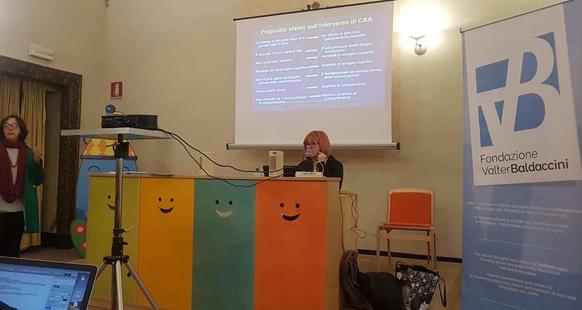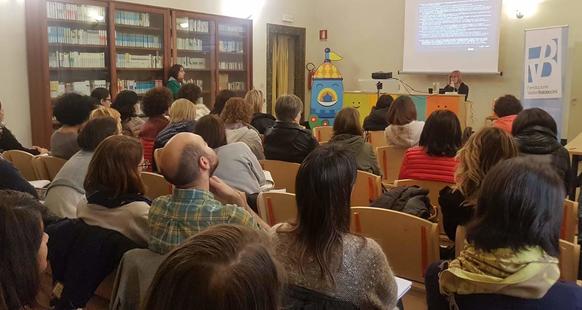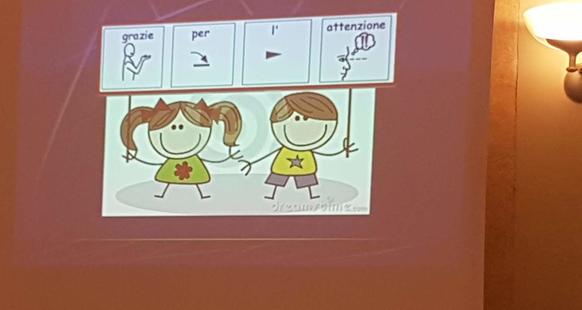Veronica and the course dedicated to Inbooks
In the first years of life, reading aloud by an adult has a fundamental emotional value and, at the same time, promotes and stimulates communication and language.
Children with communication difficulties need this activity even more, and Inbooks, books translated into symbols, are useful for this.
To make reading more accessible to everyone, the Inbook project was created, jointly developed with the Foligno Children’s Library and the Kiwanis Club Foligno.
The project has generated a lot of activities: the conference last November, the first edition of the training course dedicated to these special books, and the second course that was added due to the great demand.
We asked Veronica, one of the course participants, to tell us about her experience.
“The training course was a great opportunity for education and reflection. Laura Bernasconi and Grazia Zappa, The speakers from the Sovrazonale Center for AlternativeAugmentative Communication, told us what the CAA is, but more importantly, they showed us how to use inbooks with vides of children using them together with their parents, siblings, and classmates. They shared tangible examples of possibilities and the development of potential. It was a good opportunity for thinking about books and reading aloud as a vital educational tool. During the afternoon lab, we actually touched and smelled the inbooks, analyzed the different cases they’ve been used for, and their benefits. We also tried to read them, and for me, it was very difficult in the beginning!
Some things struck me about the course. First of all, the concept of reading aloud from the first months of age without worry about what the child can give in return. Reading is like giving a precious gift. It is essential to put the child at the center, and to value and stimulate him. I will remember that the verb to love does not take the imperative, like the verbs to read and to dream.
The course also offered practical information on choosing inbooks. The diversity of the audience, composed of curriculum teachers, support teachers, professional educators, and speech therapists enriched the discussion with different stimuli and points of view, with the common objective of introducing the inbooks into daily training practices.
As Dr. Bernasconi told us: “the use of inbooks should not be a seventh-generation antibiotic, it should be like drinking water, a practice of special normality.” I would like everyone to have the opportunity to access formative moments like this in order to empower everyone involved in the social and educational life of the child. Having a disability does not preclude communication, but a context poor in stimuli and opportunities and full of prejudices does.”
LEARN MORE ABOUT THE PROJECT




